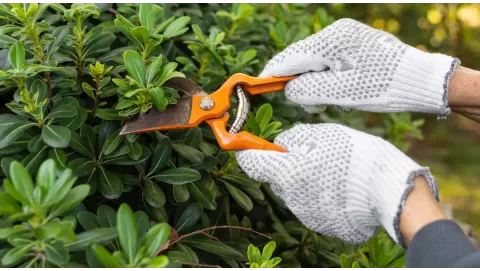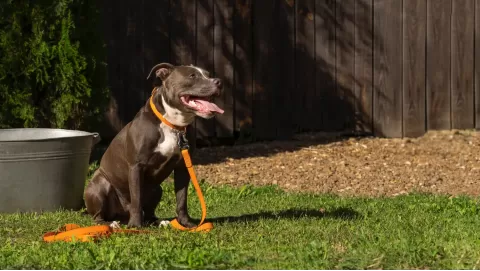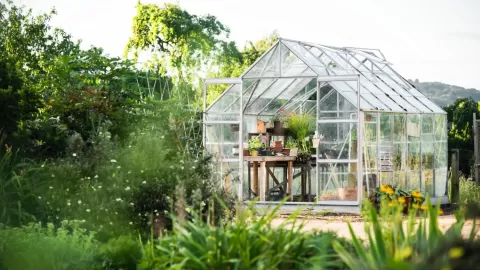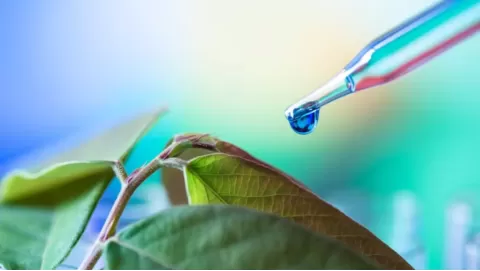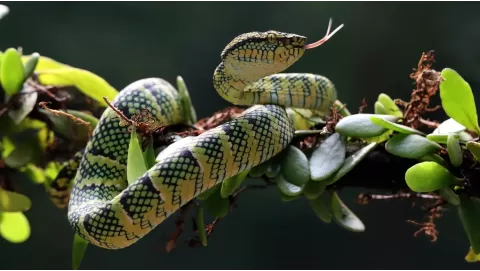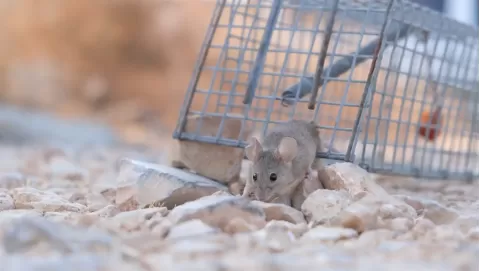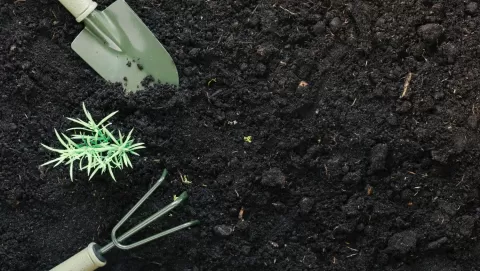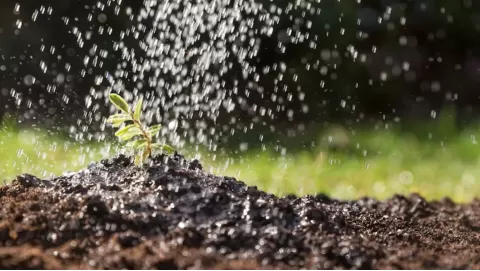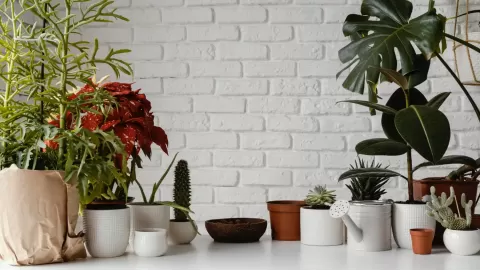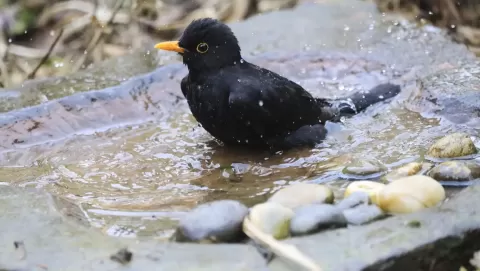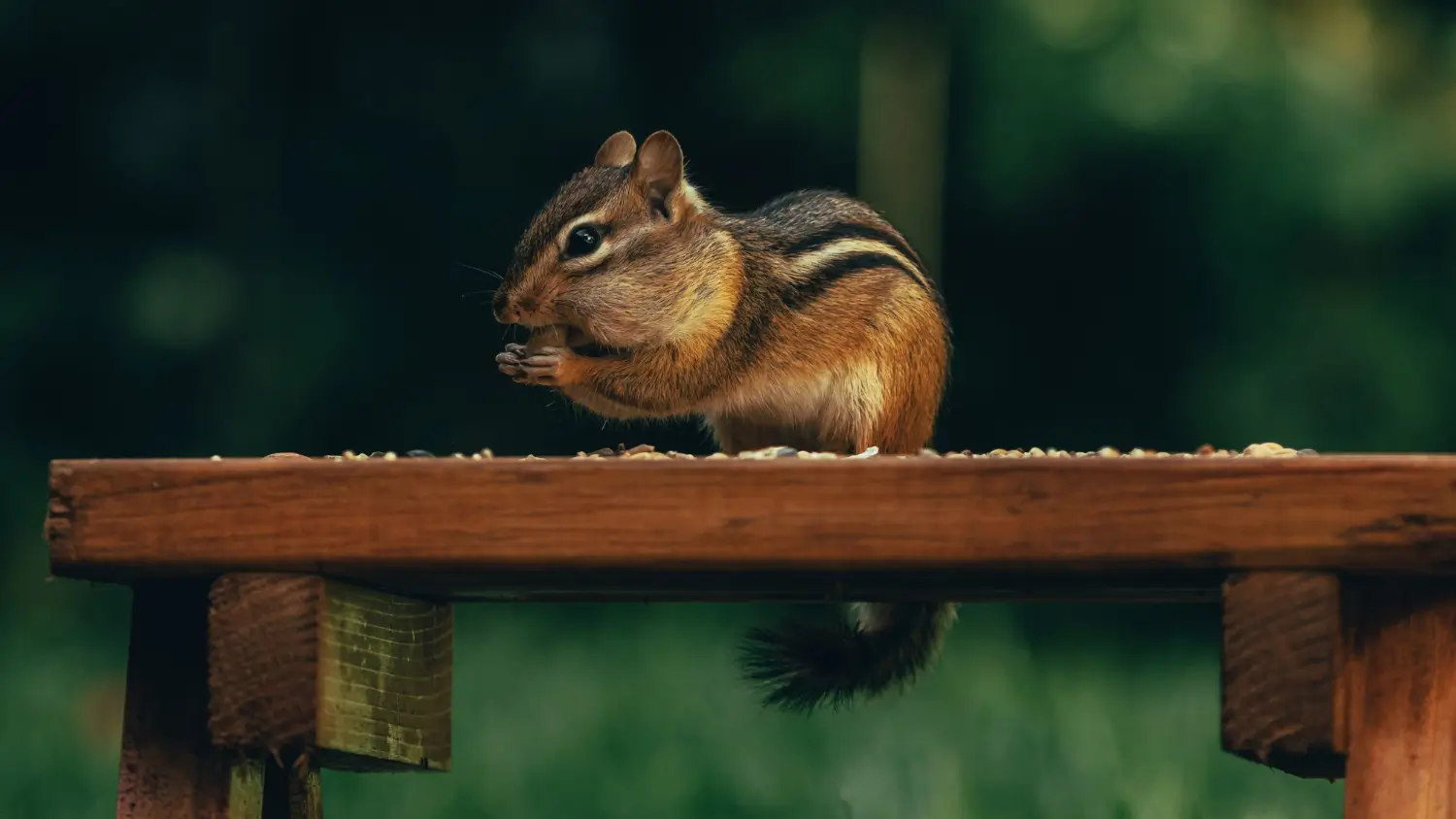
Best natural squirrel repellents that actually work: Keep pests away safely
Squirrels look so cute and playful when they leap from tree to tree, but to many homeowners and gardeners, they can be a nuisance. Though they may appear benign, squirrels are clever and resourceful animals that routinely ruin gardens, homes and patios.
In gardens, they unearth flower bulbs, munch fruit and vegetables, and destroy fresh plants. In homes, they gnaw at wood, wires and insulation and create safety hazards even. They frighten away the birds and devour all the seeds at bird feeders, making it difficult to appreciate observing birds in the backyard.
Indeed, plenty of people tend to choose effective squirrel repellents as a solution for this issue. Growcycle provides a safe and natural way on how to get rid of squirrels in yards, homes and outdoor areas.
Understanding Squirrel Behavior
Squirrels typically visit near homes for three reasons: food, shelter and curiosity.
- Food Sources: Squirrels are fond of fruits, vegetables, nuts, seeds, and even pet food. If they discover a predictable food source, they’ll return again and again.
- Nesting Opportunities: Attics, roof spaces and tree branches provide nice warm quiet places where squirrels like to have nests.
- Curiosity: A hungry squirrel might wander, particularly if it catches a whiff of food or sees a good spot to stash it.
Squirrels like to hang out in parts of the house or yard where food or shelter is abundant:
- Gardens: They dig in the dirt looking for seeds, bulbs or juicy plants.
- Bird Feeders: Squirrels are known to raid birdseed, scaring away birds.
- Outdoor Spaces: Squirrels wander around decks, patios, garbage bins and even cars looking for food or shelter.
- Attics: These places are warm, dry and safe, making them perfect for nesting.
Squirrels have certain patterns that can help people predict their activity:
- Squirrels become more active in the fall as they gather food for winter. In the spring, they look for nesting sites.
- Squirrels like to be active in the morning and late afternoon, so this is the best time to spot one roaming around. At night, they rest sometimes in a leaf nest or attic insulation.
Risks of Chemical Repellents
Some people use chemical sprays or pellets in their plants to deter squirrels. Although these products might be effective for some time, they can also pose significant risks. That’s why an increasing number of people are instead opting for natural alternatives.
1. Harmful to Pets and Children
Chemical repellents typically include powerful ingredients that can be hazardous if touched or ingested. Pets such as dogs and cats might smell or lick treated areas, and young kids could be exposed to harmful chemicals while playing outdoors. This can result in skin problems, stomach issues, or lung trouble.
2. Damage to the Environment
Some chemical repellents can be damaging to plants, soil, and water. These chemicals can wash into gardens, drains or nearby streams after a rain. This pollution can degrade the insects, birds, and other wildlife in the area.
3. Short-Term Results
Chemical repellents may seem to work in the beginning, but squirrels are intelligent. They eventually become accustomed to the smell or taste and come back. That is the only way people will be forced to apply the product regularly, which will be expensive and dangerous.
4. Unpleasant Smell and Residue
Most chemical sprays, for example, have a strong and unpleasant smell. They can also deposit a sticky or oily residue on plants, outdoor furniture or surfaces near the house.
Benefits of Natural Repellents
Natural squirrel repellent is an eco-friendly and humane solution for the homeowner and gardener who wants to avoid toxic traps and chemicals. They have multiple benefits for people and pets and the planet.
1. Safe for the Environment
Natural repellents are created from plant-derived or organic ingredients such as peppermint oil, garlic or chili. These ingredients decompose quickly and do not damage soil, water or local wildlife. They are environmentally friendly and prevent squirrels from invading.
2. Safe for Humans and Pets
Natural repellents do not have any harsh chemicals, so they are safer for the kids and pets. Families that have pets or small children can safely use these products without fear of skin irritation, poisoning or breathing problems.
3. Non-Toxic and Gentle
Natural repellents generally function by smell or taste, both of which squirrels find offensive. They do not injure the animal but rather deter it from coming too close. This also makes natural repellents a more humane solution for managing pesky pests.
4. Easy to Use
Most natural repellents come in ready-to-spray bottles or easy-to-mix formulas. They can be used around gardens, bird feeders, attics, or patios without causing stains or strong odors.
Effective Natural Squirrel Repellents
There are plenty of natural squirrel repellent methods that do not involve the use of toxic chemicals. These are safe, environmentally friendly solutions that are simple to use at home. Here are some of the best natural squirrel repellent safe for pets.
1. Natural Squirrel Deterrent Spray
Natural squirrel deterrent spray uses strong scents or spicy flavors that squirrels dislike. Below are some of the most potent ingredients:
- Garlic Extract: The pungent odor of garlic is annoying to squirrels and prevents them from chewing or digging.
- Chili or Cayenne Pepper: These spicy compounds, called capsaicin, cause squirrels to feel a burning sensation in their mouth, nose, or paws. It doesn’t hurt them, but it is really unpleasant for them.
- Peppermint Oil: The smell is nice to humans, but its strong mint scent overwhelms squirrels’ senses and drives them away.
These sprays are completely effective and safe in gardens, on outdoor furniture, and around windows or vents where squirrels might attempt to enter the home.
Application Tips
- Spray around garden beds, flower pots, bird feeders and openings to attics.
- For best results, reapply after rain or every few days.
- Do not spray directly on edible fruits or vegetables that are near harvest.
2. Squirrel Repellent for Garden
Castor oil doesn’t harm squirrels, but it alters the soil’s odor and flavor, which deters them from digging and chewing.
- Prepare a solution by combining 2 tablespoons of castor oil, 1 tablespoon of dish soap, and 1 gallon of water.
- Mix well and spray onto the soil, flower beds or garden borders directly.
- It builds a smelly burrow barrier that is particularly effective for burrowing squirrels.
This technique is particularly effective in vegetable gardens or where bulbs or seeds have recently been planted.
Companion Planting
Some plants naturally repel squirrels with their pungent smell or bitter taste. This technique adds beauty to the garden as well.
- Daffodils: Toxic to squirrels & other rodents.
- Marigolds: Strong smell that deters pests.
- Mint and Lavender: A pleasant scent to humans but too potent for squirrels.
- Garlic and Onions: Squirrels dislike the pungent smell.
- Fritillaries: They repel various types of rodents, such as squirrels.
3. Repellents Safe for Pets
When using repellents indoors with pets, it’s essential to utilize only non-toxic, pet-safe approved active ingredients. Some good options include:
- Vinegar: Another safe, common ingredient in natural sprays.
- Lemon or citrus peel oils: Gentle and serve as a scent barrier.
- Diluted peppermint oil: Safe in small amounts, and commonly used for dogs.
- Rosemary, cinnamon, and clove: Used in low doses in pet-safe products.
High concentrations of strong essential oils, like tea tree, eucalyptus, or clove oil, can also be toxic to cats and small dogs.
Application Strategies
- Always spray away from pet food bowls or pet resting areas.
- Allow sprays to dry before allowing pets into treated areas.
- Less potent solutions can be used in places pets frequent, such as backyards or patios.
4. DIY Repellent Recipes
Homemade repellents are cost-effective, as well as easy to tailor. Here are two great recipes:
1. Spicy Garlic Spray
Ingredients
- 2 cloves of garlic (crushed)
- 1 tablespoon chili powder or cayenne pepper
- 1 teaspoon liquid dish soap
- 1 liter of water
Instructions
- Combine 2-3 tbsp garlic powder with 2-3 tbsp chili powder into a bucket of water.
- For added potency, leave it overnight.
- Mix in dish soap and transfer to a spray bottle.
- Mix well before every use, as well as spray on outdoor surface areas and poles.
2. Peppermint Vinegar Spray
Ingredients
- 1 cup white vinegar
- 10–15 drops of peppermint essential oil
- 1 cup water
Instructions
- Combine ingredients in a spray bottle.
- Spray on or around doors, windows, attic vents, or the edges of gardens.
- Reapply every few days or following rain.
How to Get Rid of Squirrels in the Yard
Eliminate squirrels from the yard with a combination of hands-on outdoor maintenance, habitat alterations, and long-range deterrents. These tactics can help homeowners keep squirrels at bay safely, humanely, and effectively.
Outdoor Maintenance Strategies
Squirrels will eat just about anything and are scavengers, so they frequently get into trash cans or bird feeders. This will help to make the yard less appealing to squirrels.
- Garbage Bins: Keep bins with tight lids that squirrels can’t open easily. Consider bungee cords or lockable lids.
- Bird Feeders: Squirrels are crazy about raiding bird feeders. Squirrel-proof feeders are designed to block intruders while still allowing birds to feed and are hung on poles or use squirrel baffles (a plastic or metal barrier) to deter squirrels from climbing up. Or switch to squirrel-proof bird feeders.
- Motion-Activated Sprinklers: These are sprinklers that sense motion and then release a blast of water, startling squirrels and sending them running without hurting them. They are a very effective deterrent in gardens and yards for keeping squirrels out.
- Noise Makers: High-pitched frequencies or bright flashes can also help keep squirrels away. But these long term methods slowly become ineffective, as squirrels get used to the sound over a period of time.
Habitat Modification
Squirrels' common method of yard entry is via climbing trees or perching high. By changing the surrounding home habitat, gardeners can minimize their access and the likelihood that they will nest close to home.
- Trim Tree Branches: Trim tree branches that hang near the roof, gutters, or any other structures. Squirrels will use these branches as bridges to access attics or other out-of-reach places.
- Remove Potential Nesting Areas: Squirrels nest in high-level shelter-like spaces attics, chimneys, roof spaces and even wood piles. People can deter squirrels from residing close to the house by denying access to these areas and removing any potential nesting spots.
Long-Term Preventative Measures
Regular maintenance in the yard helps make it less appealing to squirrels. An orderly yard is much less likely to offer food and shelter or nesting opportunities for squirrels.
- Remove Fallen Fruit and Nuts: Squirrels are opportunistic feeders, and they will search for food, especially where fruit trees and nut-bearing trees are available. Pick up fallen fruit or nuts regularly.
- Seal Entry Points: Identify small holes or gaps around the home, especially around the attic, roof and basement. Stuff these openings with wire mesh or steel wool to prevent squirrels from getting inside.
- Use Ground Covers or Mulch: Make sure mulch or ground cover is tidy in the garden.
- Monitor Squirrel Activity: Notice where squirrels are most active. This will help do what is recommended and monitor results.
- Reapply Repellents: Whether natural sprays or other deterrents, they will need to be reapplied frequently. Weather and activity can lessen their effectiveness, so sticking to a repellent routine is crucial.
Squirrel Control Solutions for Attics and Interiors
Squirrels cause interior damage to homes when they get into attics, walls, and other areas. They can cause damage, build nests, and present safety hazards. Here are some effective squirrel control solutions for indoors, from detecting entry holes to using natural treatments and contacting professional services.
Identify Entry Points
Squirrels are powerful climbers and can get into nearly any building. In order for people to prevent future incursions, it is important to know where they are entering.
- Roof Gaps: Damaged shingles, loose flashing, or holes around vents can allow squirrels to access the roof.
- Chimneys: Squirrels are known to get in through chimneys if they are not properly covered.
- Soffits and Eaves: Gaps in soffits (the area underneath the edge of the roof) or around eaves are frequent access points.
- Vents and Pipes: Squirrels can wiggle into small holes around plumbing or air conditioning units if these areas are not being adequately sealed.
- Cracks in Walls or Foundation: Squirrels move through cracks in the walls or cracks in foundation. They can squeeze through holes smaller than their heads.
Natural Deterrents for Indoors
When squirrels are indoors, they need to use safe and effective methods to drive them out without doing harm.
- Peppermint Oil: Squirrels do not like the strong smell of peppermint. Soak cotton balls in peppermint oil and set them down in areas where squirrels enter, such as attics or walls.
- Vinegar: Squirrels may not like to linger in one spot with the sour odor of vinegar. Combine vinegar and water then spray on entrance points, beams or other spots with squirrel activity.
- Cayenne Pepper or Chili Powder: Squirrels dislike the spicy flavor and odor of chili powder. Dust it around places where squirrels could enter, such as vents or openings in the attic.
- Garlic: Crush garlic and leave it in small bags or hang it in frequent squirrel areas. They avoid the strong scent.
- Essential Oils: A combination of essential oils like eucalyptus, citronella and rosemary can be sprayed in places where the squirrels have been. The smell can drive them off.
Preventative Home Maintenance
Keeping squirrels out of the house is the best way to prevent them from becoming a problem in the future. With regular maintenance and vigilance, a home can be protected from squirrel damage.
- Sealing Entry Points
Look for holes, gaps or cracks that would let squirrels in. Plug these openings with steel wool, mesh, or weather-resistant caulk. Use chimney caps and vent covers to block squirrels from entering through these areas. Seal gaps around pipes, vents or wiring with foam sealant or silicone caulk.
- Installing Barriers
In areas where squirrels might attempt to climb, put up barriers such as squirrel-proof fences or roof barriers. These will keep squirrels from reaching the roof or entering the walls.
There are deterrent devices that can be installed around entry points to keep squirrels away, such as motion-activated sprinklers and ultrasonic repellents.
FAQs
What is the most effective squirrel repellent?
Squirrels have a very sensitive sense of smell and taste, so natural repellents, such as peppermint oil, garlic, and cayenne pepper, work well at keeping squirrels away.
What is the best pest control for squirrels?
Preventing squirrels includes sealing possible entry points, employing natural repellents (such as peppermint oil), and using motion-activated sprinklers. Professional pest control services will be required for serious infestations.
How to repel squirrels naturally?
Natural squirrel deterrents include sprays made of garlic, chili pepper or peppermint extracts, or castor oil, which can also be applied to plants and around entrance points. And people can also try planting squirrel-repellent plants such as daffodils or marigolds.
The Bottom Line
Natural squirrel repellents for the garden are a safer and more eco-friendly choice. Peppermint oil, garlic, and chili are ingredients that repel squirrels without causing harm to the environment and their loved ones. These natural solutions provide protection against pests in gardens, homes, and outdoor areas and are safe for pets and children. Check Growcycle for additional squirrel solutions that are safe for homeowners and humane for gardeners.
Disclaimer: This material is for informational purposes only and should not be relied on for legal, medical, financial, or any other form of professional advice.


